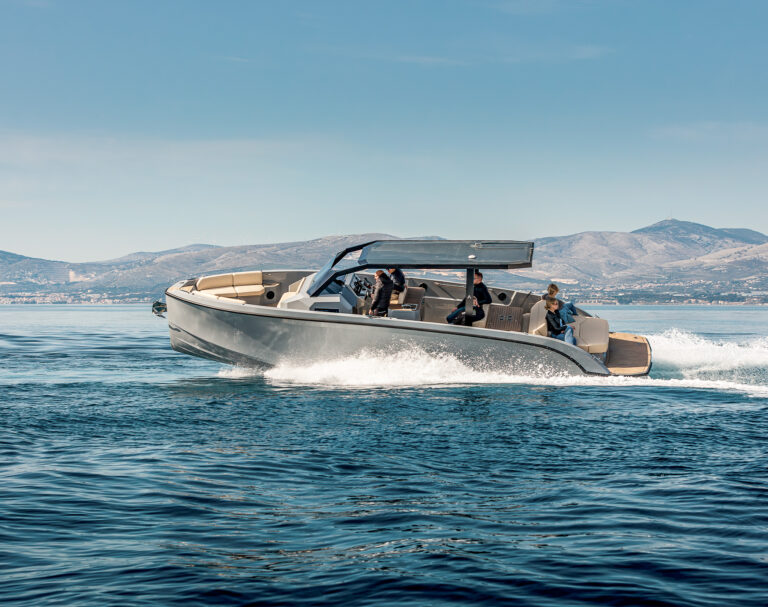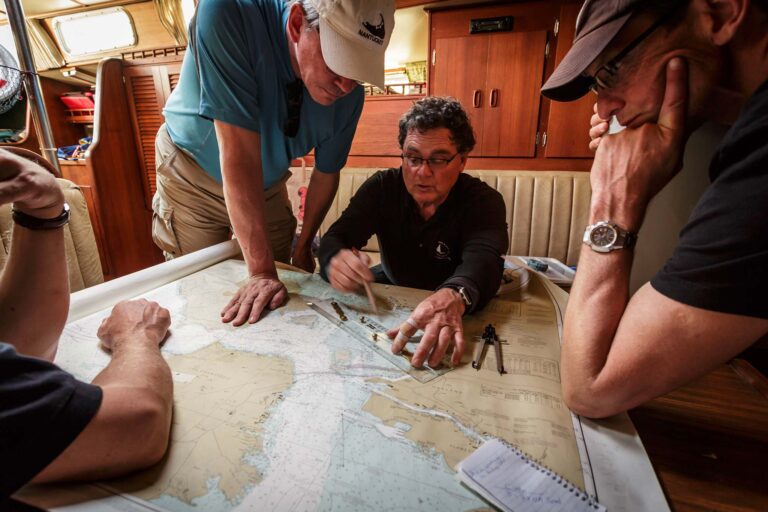
Consider the captains we’ve sailed with. We still contemplate their qualities, long after parting ways. At least I do. Some are naturals, but most are people who use discipline, honing their characters and applying training and experience to their good instincts. Being a crack sailor or having great boat-handling abilities alone is not enough when it comes to being a “right stuff” captain.

First, character does matter. Good captains possess a stable nature, are at ease in their own skin and are comfortable with delegating responsibilities. Some decisions are difficult to make, and secure captains know how to balance the vessel’s needs above the desire to be liked. The captains I’ve most respected have the confidence to take responsibility, balanced by a graceful ability to admit mistakes. And they made a conscious effort to learn from their mistakes. Saying I was wrong is not a sign of weakness.
Captains are human, and occasionally, whether they show it or not, they get spooked. If something feels weird in your stomach, it probably is weird. Good captains pay attention to this vibe. Channeling uncertainty or fear into a growth opportunity is key. As Franklin D. Roosevelt said, smooth seas never made a skilled sailor. Being exposed to difficult situations is the path toward competency and is a necessary component of a captain’s character. I’m not advocating throwing oneself into reckless situations, but pushing the boundaries of a comfort zone is key, and doing so comes naturally to people who are passionate about being on the water. Curiosity motivates them.
In addition to guts and good character, there is no substitute for experience and training. It’s a great comfort to know the captain has “been there” and knows how to solve problems, recognize talent and resources, and find solutions. My father was fond of saying that each new experience that makes you stretch makes you a little bit smarter. Learn by doing. So it goes for seasoned captains.
In addition, a good captain possesses an ongoing commitment to training, proficiency and staying up to date on the whole gamut of on-board topics. Other people’s safety depends on that commitment. A conscientious captain values precruise planning, carefully assesses overall readiness to leave the dock and considers options. An experienced and well-trained captain is uniquely qualified to maintain the big-picture view of competing priorities, such as weather, time, vessel fitness and suitability, crew ability, budget and more.

Captains have various styles, but all good captains have one valuable skill set in common: They’ve mastered the touchy-feely stuff, the people skills. A good captain strives to be calm, compassionate and fair, which develops crew confidence and tends to inspire everyone to perform at their best — and their most contented. On-board morale gets a big boost when a captain gives credit to the crew.
At the same time, the most effective captains readily communicate their expectations and parameters. No one is perfect, but the best captains try to support, not criticize, and are straightforward about deficient performance. They avoid ad hominem criticism of individuals and instead give guidance for improvement. Looking after the crew’s need for satisfying food and entertainment (or at least laughs) and making sure everyone is adequately rested are constant challenges, but satisfying those needs is well-rewarded. Good captains never underestimate the benefits of going ashore.
Running a boat with a large crew is challenging. Many captains find that giving crewmembers the tools they need and then staying out of the way is the most productive formula. Small boats with minimal crews are different. Family boats, or boats run by a couple, have another dynamic altogether, requiring a captain to be more hands-on, to lead by example.
Still, all types of captains share one attribute: They’re good managers. Laying out expectations, providing support when needed and supervising the entire on-board effort ensures a positive outcome, no matter the length of the voyage, the destination or the size of the boat. Captains who are at home in their own skin are a joy to sail with.
Being in that state doesn’t just happen to most of us. It comes from the pursuit of wisdom through new experiences, and from training and maintaining proficiency. It also comes from simply being a decent human being.
With a good captain and a willing crew on board, the satisfaction and rewards of a happy ship are magical.
This article originally appeared in the April 2018 issue.










